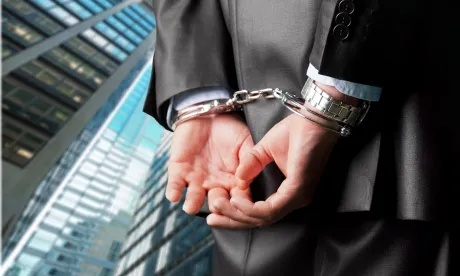On June 30, 2022, the Supreme Court granted certiorari for two related cases: Percoco v. United States, 21-1158, and Ciminelli v. United States, 21-1170. Mr. Percoco and Mr. Ciminelli were both defendants in an underlying criminal fraud case out of the Southern District of New York, in which they were convicted of honest services fraud and wire fraud, respectively. They appealed their convictions to the Second Circuit, and then to the Supreme Court. By granting certiorari, the High Court has taken up whether certain theories of liability pursued by the Government in federal fraud prosecutions are sufficient to sustain a conviction.
Percoco v. United States, 21-1158
Mr. Percoco, while serving as the 2014 reelection campaign manager for then Governor Andrew Cuomo (D-NY), accepted $35,000 from a Syracuse-based development firm. Prosecutors contend that the development firm sought Mr. Percoco's influence to help it build a hotel parking lot. For his actions, a jury convicted Mr. Percoco of honest services fraud, among other charges. Now, Mr. Percoco requests the Supreme Court consider whether he, as a private citizen who holds no elected office or government employment — but who does have informal political influence and influence over governmental decision making — owes a fiduciary duty to the public, despite his lack of formal ties to the Government, itself. Without such a fiduciary duty, his conviction under the honest services fraud statute cannot stand.
Ciminelli v. United States, 21-1170
Mr. Ciminelli is a former real estate development executive whose company, after a bidding process, won a state-sponsored contract to build a manufacturing facility in Buffalo, New York. Prosecutors contend that Mr. Ciminelli conspired with others — including those in the government — to rig the bidding process so that his company would win the contract. For his actions, a jury convicted Mr. Ciminelli of wire fraud, among other charges.
Prosecutors sought Mr. Ciminelli’s conviction under a “right to control” theory of liability, contending that the rigging of the bidding process deprived the Government of its property interest in potentially valuable economic information necessary to make discretionary economic decisions. Mr. Ciminelli argues that this sort of theory targets deception, but not one with a concrete connection to the Government’s traditional property interests, as it must under the federal wire fraud statute. In other words, Mr. Ciminelli contends his actions were not fraudulent under the wire fraud statute because they did not result in the Government being deprived of a property right.
The High Court’s ruling in Ciminelli would resolve a circuit split over whether the “right to control” theory is a valid basis for liability under the federal wire fraud statute. The Eighth and Tenth Circuits have joined the Second Circuit in embracing it, while the Sixth and Ninth Circuits, have rejected it.
Continuing a Trend
The grant of certiorari in Percoco and Ciminelli is of note because they come on the heels the High Court’s decision in Kelly v. United States, 140 S. Ct. 1565 (2020). There, two aides to then-Governor Chris Christie (R-NJ) used their political influence to shut down multiple lanes on the George Washington Bridge as retribution for the mayor of Fort Lee refusing to endorse Governor Christie’s 2013 re-election bid. As a result of their actions, both aides were convicted of violating multiple federal fraud statutes. The Supreme Court overturned the aides’ respective convictions, reasoning that since the aim of the aides’ actions was political retribution—and not to deprive the Government of a traditional property right—their actions did not constitute fraud under federal law. Taking Mr. Ciminelli’s case on appeal is an opportunity for the Supreme Court continue pursuing its apparent recent interest in limiting federal fraud statutes to their original intent of protecting the Government from property fraud, not other, less tangible, forms of deception.




 />i
/>i

